Eurovision Song Contest 2017: Everything you need to know
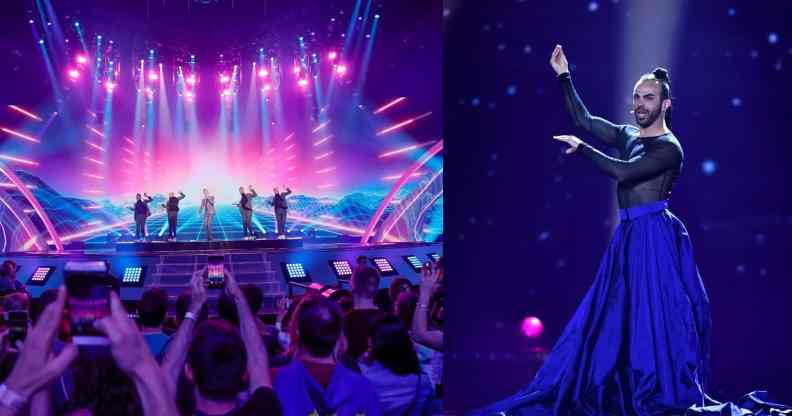
The 2017 Eurovision Song Contest final takes place this Saturday night in Kyiv – here’s everything you need to know.
The famously-camp music contest attracts a massive LGBT audience from across Europe and the world, and this year’s theme is ‘Celebrate Diversity’.
Ahead of the contest, here’s a run-down of all you need to know.
When is Eurovision 2017, and where can I watch it?
As usual, the contest is divided into two semi-finals and the Grand Final.
The first semi-final aired on Tuesday, May 9 at 8 PM via BBC on BBC Four, and the second semi-final aired on Thursday, May 11.
Ten contestants from each semi-final progressed to the Grand Final, alongside the ‘Big Five’ countries (Germany, France, Italy, Spain and the UK) and host Ukraine who have automatic spots in the final.
The Grand Final takes place on Saturday, May 13. In the UK, it will air at 8 PM on BBC One, with commentary from Graham Norton.
In the US, it will air at 3 PM Eastern / 12 PM Pacific on Logo TV with commentary from RuPaul’s Drag Race judges Michelle Visage and Ross Mathews.
You can also tune in from anywhere in the world online. The event will be live-streamed on Eurovision.tv and on YouTube.
Who is the favourite to win according to the latest Eurovision odds?
The current odds-on favourite is Italian entrant Francesco Gabbani, who is an established musician in the country with a nomination for an MTV Award.
His entry Occidentali’s Karma is already a hit, with more than 100,000,000 on views on YouTube for the music video before the contest even airs.
The Italian team have pulled out all the stops for Eurovision, with a dancing gorilla making an appearance on stage.
Despite the visuals, the Italian-language track itself is not standard Eurovision fare, drawing lyrics from philosophy and Eastern culture… while also giving a nod to Singin’ in the Rain.
If Francesco does well on the night then any other result would be a serious upset, but of course anything can happen in Eurovision.
Bookmakers currently have Italy on 5/6 to take the trophy, with Portugal and Sweden next in line on 10/1.
Who is the UK’s Eurovision entrant Lucie Jones?
You might not have noticed, but the public was invited to pick the UK’s entrant earlier this year with a selection show banished to the little-explored depths of BBC Four.
Following a string of poor performances in recent years, the public opted for someone who can at least actually sing, picking Welsh singer Lucie Jones with the song ‘Never Give Up on You’.
When she’s not doing Eurovision, Jones is a fully-fledged professional musical theatre star, who has appeared in West End productions of Rent, We Will Rock You and the musical adaptation of Legally Blonde. You may also recognise her as a former contestant on The X Factor after she made it to the live finals in 2009.
The UK has broken the top ten just once in the past 15 years, but if pure talent counts for anything, 2017 could be the year that the cycle is finally broken.
Or it could be Nul Points again. Viva la Jemini.
Is there any Eurovision craziness to look out for?
It wouldn’t be Eurovision if there wasn’t, would it?
Azerbaijani goth. Horse’s head. Stepladder. That’s all we’re saying.
Meanwhile, the Czech Republic are relying on giant protections of naked people, while Montenegro’s entrant Slavko Kalezić is donning a killer outfit for song ‘Space’
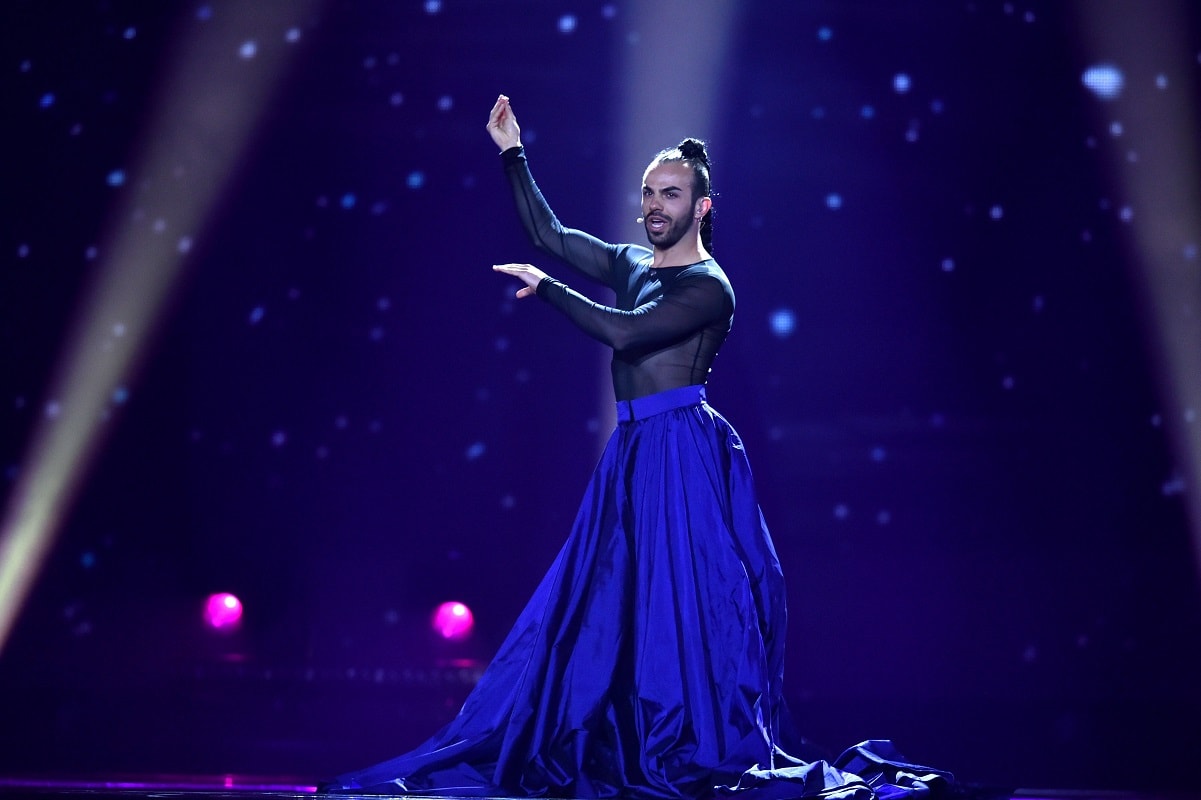
Who are the hosts of the Eurovision 2017 final?
Marking this year’s contest theme of ‘Celebrate Diversity’, the national broadcaster picked three white men to front the show – Oleksandr Skichko, Volodymyr Ostapchuk and Timur Miroshnychenko.
Mr Miroshnychenko is an old hand, having provided Eurovision commentary for Ukraine for a decade, while TV presenters Skichko and Ostapchuk will inject some slick hosting and Ukranian humour.
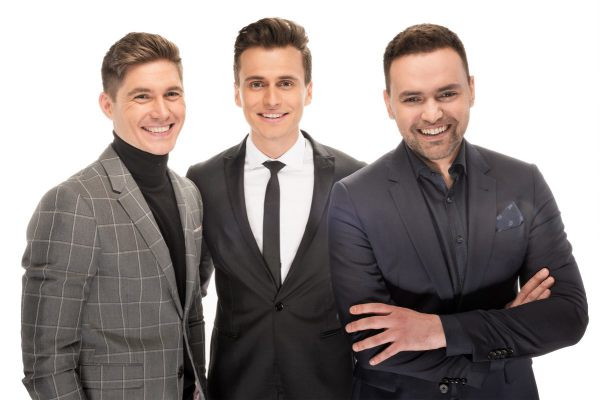
The 2017 contest is taking place in Ukraine’s capital, Kyiv, after the victory of Crimean singer Jamala with emotionally-charged entry 1944.
The contest will be held in the city’s International Exhibition Centre.
When we visited back in March, the venue resembled a disused aircraft hangar, but it’s been converted into a hi-tech stadium in just a few weeks, ready for the show.
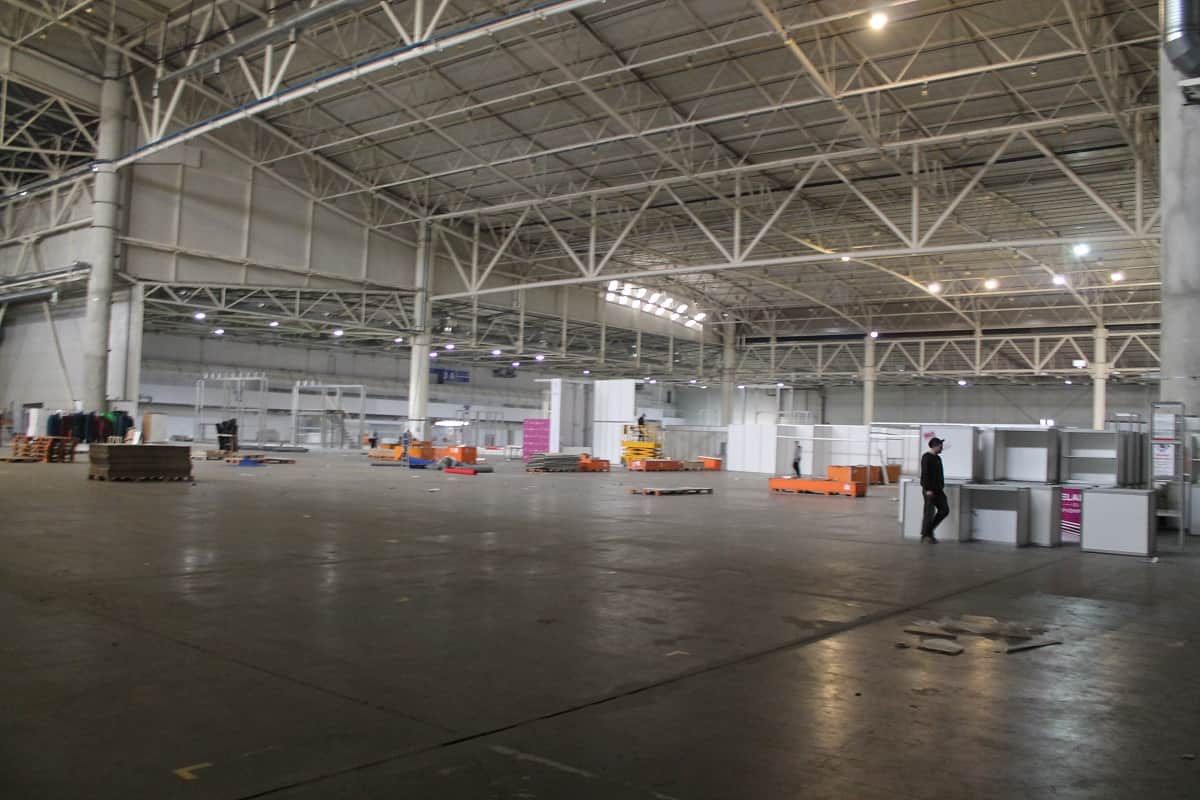
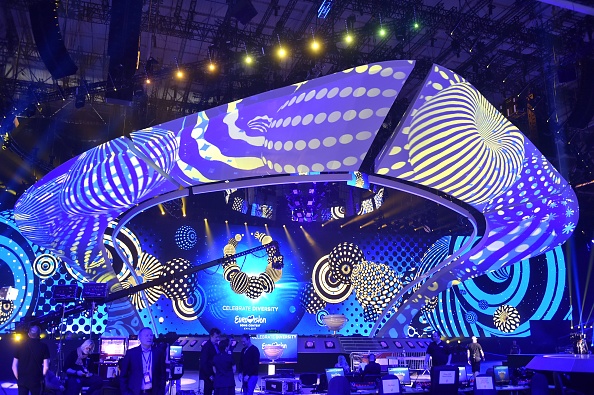
Which countries are in Eurovision 2017?
Two countries are set to make Eurovision comebacks in Kyiv, with Portugal and Romania returning to the contest after absences due to financial difficulties.
The only countries with an automatic ticket to the final are Germany, France, Italy, Spain, the Ukraine and the UK.
The other 36 countries battled it out for the 20 remaining slots during the semi-finals.
The countries competing in the semi-finals are:
Semi 1 featured: Sweden, Georgia, Australia, Albania, Belgium, Montenegro, Finland, Azerbaijan, Portugal, Greece, Poland, Moldova, Iceland, Czech Republic, Cyprus, Armenia, Slovenia, Latvia.
And successfully qualifying were: Moldova, Azerbaijan, Greece, Sweden, Portugal, Poland, Armenia, Australia, Cyprus and Belgium.
Semi 2 (Thursday): Serbia, Austria, Macedonia, Malta, Romania, Netherlands, Hungary, Denmark, Ireland, San Marino, Croatia, Norway, Switzerland, Belarus, Bulgaria, Lithuania, Estonia, Israel.
And successfully qualifying were: Bulgaria, Belarus, Croatia, Hungary, Denmark, Israel, Romania, Norway, The Netherlands and Austria.
Viewers in the UK were only able to vote during the first semi-final, and not the second.
Which countries AREN’T taking part?
The big news for 2017 is that usually-reliable Russia is sitting out the contest over a spat with host country Ukraine.
Ukraine’s relations with Russia remain at extreme lows amid ongoing conflicts in eastern regions, where Russia stands accused of propping up separatists in order to destabilise the country after annexing a Ukrainian territory, Crimea.
The song contest was thrown into crisis when Ukraine’s security services announced that Russian contestant Yulia Samoylova has been banned from the country, and would not be permitted to attend.
Her ban came after revelations that she has performed in Crimea since Russia’s annexation. All people known to have travelled to Crimea via Russia are banned from Ukraine, as they are considered to have illegally entered Ukrainian territory.
After the European Broadcast Union was unable to resolve the dispute, Russia announced it would snub the contest entirely.
Both Ukraine and Russia could face punishment from the organisers over the row, but wisely the decision has been delayed until after the contest.
Meanwhile, the host city has taken to trolling their neighbours to the east, converting a Ukraine-Russia ‘Friendship’ monument into a giant rainbow to mark the start the contest. The shade of it all!
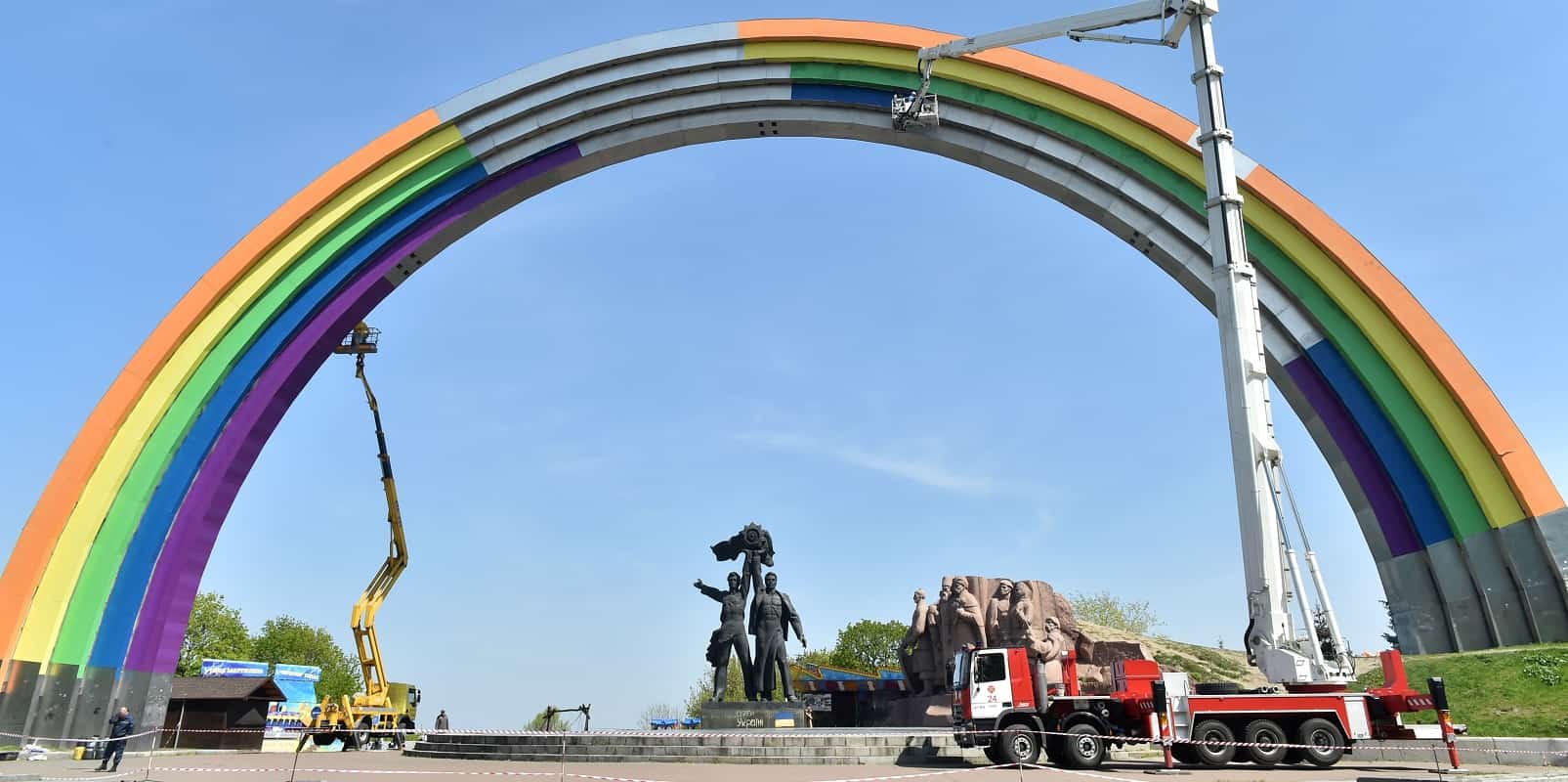
Bosnia and Herzegovina will also sit out this year’s contest due to financial problems.
Andorra, Luxembourg, Monaco, Morocco, Slovakia and Turkey, who have all sporadically participated in Eurovision in the past, decided against taking part in 2017.
Why do you keep calling it Kyiv?
A lot of outlets continue to refer to Ukraine’s capital by the preferred Soviet-era transliteration, Kiev.
The name is a sore point in the country since the 2014 EuroMaidan revolution, which saw the ousting of the country’s pro-Russia President and the formation of a government that supports closer ties to Europe.
The current administration prefers the anglicisation ‘Kyiv’, which takes its root from the Ukrainian-language name of the city rather than the Russian name.
Of course it’s not the only linguistic shift in the post-Soviet country, which prior to 1995 was often stylised as ‘the Ukraine’.
These days it’s just ‘Ukraine’, and just ‘Kyiv’. And it’s a lovely city.
Why is Australia taking part in a ‘European’ song contest?
*deep breath* Yes, we know Australia is not in Europe.
Australia was initially invited to take part in 2015 as a supposedly ‘one-off’ entrant to celebrate the contest’s 60th anniversary and recognise the the Eurovision fanbase Down Under.
After a fifth-place finish on their debut performance, Australia was again invited to participate in 2016.
Last year Dami Im narrowly missed out on a first place finish due to a change in the voting system, coming a close second.
After that it seemed kind of unfair to kick them out, so the European Broadcasting Union invited them back again for 2017.
Basically, they’re in Eurovision until they start doing badly or want to leave.
This year 17-year-old X Factor Australia winner Isaiah Firebrace is representing the country with track Don’t Come Easy.
It’s a pretty good song, so they might be here for a while to come.
How does voting work?
The voting system will follow a redesigned process introduced during last year’s contest, which was intended to shake up the show’s format.
Under the new system, each of the 42 countries gets to award two sets of points – one based on the general public’s televote, and one based on votes from a jury of music industry experts.
For the Grand Final, the national spokespeople for each country will announce the jury points, handing out 1-8, 10 and 12 points.
After the traditional 42-way hour-long Skype call is complete and all the jury points allocated, the televotes come into play for a dramatic finale.
The points allocation from each country’s televotes are pooled together and announced in one go, from lowest to highest. It’s tense!
Are there any surprises?
Expect to see a lot of Ukraine’s reigning Eurovision champ Jamala, who is set to reprise her track 1944 and also perform her new single I Believe in U, which is a decidedly less genocide-y up-tempo pop ballad.
Former Ukranian Eurovision star Verka Serduchka (the dancing guy in the tin foil hat) will also be popping up, and former Eurovision winner Ruslana will be making an appearance or two.
Veteran Eurovision fans might recall that Ruslana won the contest in 2004 with the track Wild Dances, but her post-Eurovision career has been nothing short of amazing.
She was elected to the Ukranian Parliament, served as a UNICEF Goodwill Ambassador, played an integral role in supporting the country’s 2014 revolution, received the International Women of Courage Award, and was mooted to be named Hero of Ukraine.
That’s one hell of a CV.
The Eurovision Song Contest 2017 Grand Final airs this Saturday, May 13 at 8 PM on BBC One.

